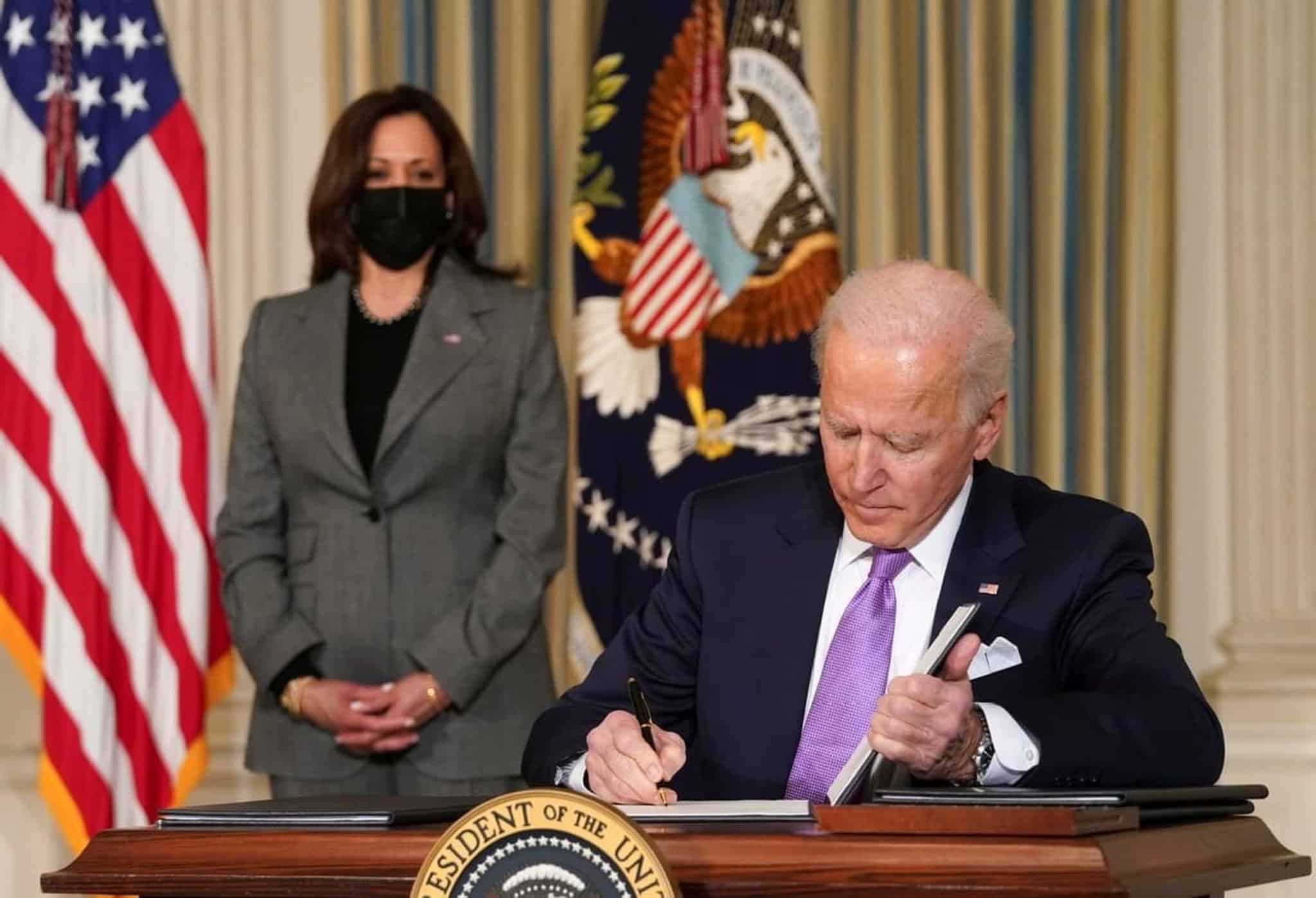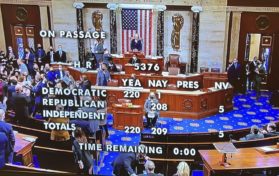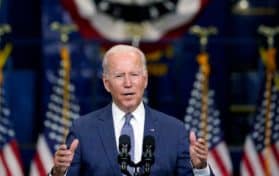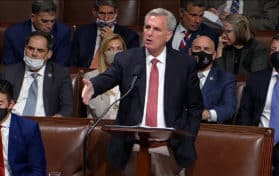
The United States is in the midst of surge in prices that hasn’t been seen since the early 1980s; in fact, inflation reached a thirty-nine year high in November 2021.
President Joe Biden recently said that “inflation is affecting people’s lives,” but little has been proposed to address the situation. Biden and his administration have said that there are lots of good things going on in the American economy, but also adds that passage of his Build Back Better plan will do more to address inflation.
However, the Congressional Budget Office released a new analysis of the bill on Friday, and the CBO says that the Build Back Better plan could actually add a whopping $3 trillion over the next decade if the programs in the spending bill are made permanent.
The Build Back Better bill has a current price tag of $1.7 trillion, according to the Biden Administration. However, the CBO released information last month, just prior to the passage of the legislation in the House of Representatives, stating that the bill would possess a cost closer to $3.5 trillion.
Once the CBO released its score on the bill, Speaker of the House Nancy Pelosi pushed a vote through the House, and it passed by a very small margin along party lines, despite a record 8 hour opposition floor speech by Rep. Kevin McCarthy (R).
The bill would create universal preschool, offer new funding for childcare, expand Medicaid, and establish tax credits for “green energy,” including $12,500 for those purchasing an electric vehicle from a union auto manufacturer. This version of the bill was pared down from its original form, progressive priorities such as free community college and dental and vision coverage for those on Medicare.
The bill is “not going to cost the average taxpayer a thing,” according to Biden, but, in order to meet this criteria, the government will need to take in $1.95 trillion in taxes. These taxes are “aimed” at a fifteen percent corporate minimum tax as well as a surcharge ultra-millionaires would pay.
The Congressional Budget Office released this report at the behest of Republicans; many of whom had related that the Biden Administration and Democrats who support the bill had used “budget gimmicks” in order to hide the true cost of the Build Back Better bill.
Republicans have nicknamed the legislation the “Build Back Broke” bill.
As of this writing, the Build Back Better legislation is sitting in the Senate, and no vote is scheduled at this time.
The issue with the bill lies in the length of time each of the aforementioned programs is slated to end. Most of the programs are only supposed to be in operation for a few years; however, Republicans and other opponents of the bill state that there is no guarantee that Congress simply won’t vote to re-up the programs for another few years.
It is true that lawmakers often pass extensions to bills later, especially if said program is popular with a lawmaker’s constituents.
The original estimate released by the CBO stated that the legislation would increase the nation’s deficit by $160 billion over the next decade. However, if the measures did not expire in a few years’ time, the bill would actually cost about $4.9 trillion.
Senator John Cornyn (R-TX) commented, “If the temporary provisions of this bill are extended, and I fully expect them to be if our Democratic colleagues have the votes to do it, this legislation will cost a whole lot more than what the American people have been told.” Democrats have indicated that if across the board cuts are taken regarding the spending package, they do intend to force a future Congress to extend popular programs before they sunset.
This is the case with the current expanded child tax credit signed into law earlier this year. Both the Biden Administration and Congressional Democrats have pushed to make the credit permanent, which the CBO says will cost about $1.6 trillion.
Senator Joe Manchin (D-WV) remains firm in his aversion to passage of the Build Back Better bill. He has joined Republicans in accusing the Biden Administration and his Democratic colleagues of “budget gimmicks” that conceal the true cost of the legislation. Manchin has referred to a possible extension or the making of any of the programs permanent as a “recipe for (an) economic crisis.”





